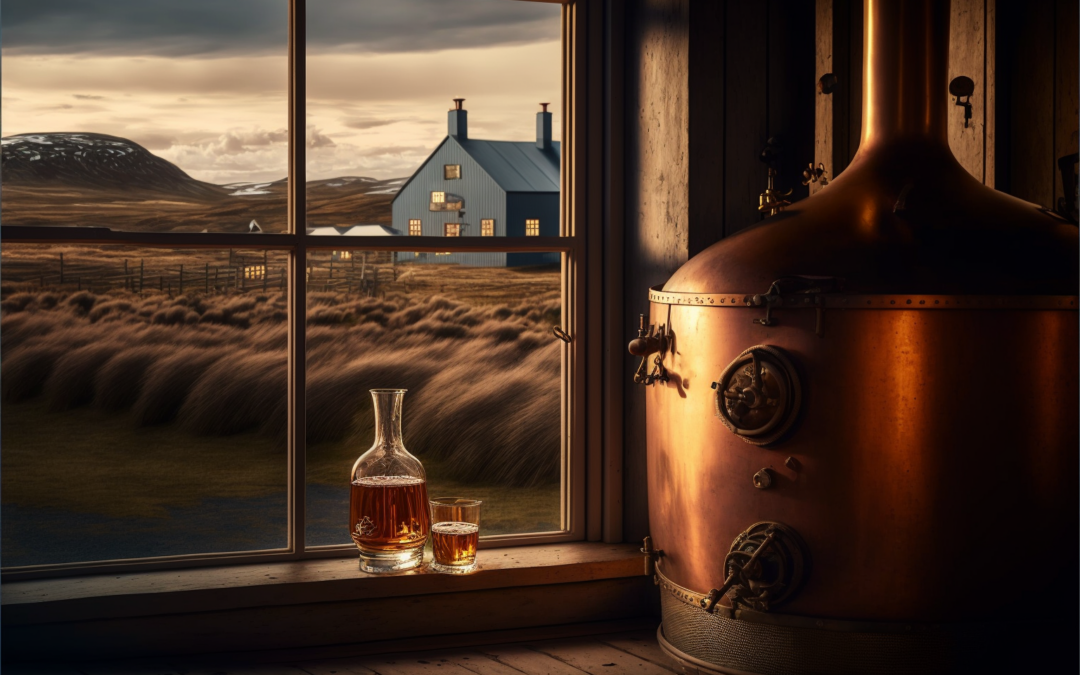The gin industry in Iceland has seen significant growth in recent years due to several key factors. Firstly, the country’s unique landscape and rich cultural heritage has inspired gin makers to use local botanicals in their recipes, creating gins that reflect the country’s terroir. Secondly, the increasing popularity of gin globally has provided an opportunity for the Icelandic gin industry to reach a wider audience. Finally, the close-knit community of gin producers in Iceland allows for a collaborative approach to gin production, promoting the industry and the unique characteristics of Icelandic gin.
Iceland is known for its dramatic landscapes, from its glaciers and hot springs to its rugged coastline and rolling hills. This natural beauty has inspired gin makers to use local botanicals to create unique gin recipes. For example, Skál Gin uses angelica root, licorice root, and birch leaves, which are all commonly found in the wild in Iceland, giving the gin a distinct flavor profile that is not found in gins produced in other parts of the world.
The cultural heritage of Iceland also plays a role in the development of the gin industry. The country has a rich history of distillation, with roots in traditional Icelandic medicine. This knowledge and expertise has been passed down through the generations and has been adapted to the production of gin. The use of traditional distillation methods, such as copper stills and hand-crafted processes, results in gins with a smooth and well-balanced flavor profile.
In addition, the gin industry in Iceland has benefited from the increasing popularity of gin globally. Gin has seen a resurgence in popularity in recent years, with many new gin brands emerging and old brands being reinvented. This has led to a growing demand for gin and has provided an opportunity for the Icelandic gin industry to expand and reach a wider audience.
64 Reykjavik Distillery, established in 2010, is one of the earliest craft distilleries in Iceland. They specialize in gin production and use traditional distillation methods to create a range of gins that reflect the country’s natural beauty and cultural heritage. The distillery has received recognition both within Iceland and internationally for its gins, which are made using locally sourced ingredients and are known for their high quality and unique flavor profiles.
Eyeland Spirits, established in 2018, is another example of a craft distillery in Iceland that specializes in gin production. The distillery uses locally sourced botanicals to create gins that are unique to the country and reflect its terroir. Eyeland Spirits is known for its high-quality gins, which have received recognition both within Iceland and internationally.
In conclusion, the Icelandic gin industry is an exciting and growing part of the global gin market. The combination of unique landscapes, rich cultural heritage, and high-quality ingredients and traditional methods has allowed for the creation of gins that are not only delicious but also unique and reflective of the country’s natural beauty and cultural heritage. The close-knit community of gin producers in Iceland allows for a collaborative approach to gin production, promoting the industry and the unique characteristics of Icelandic gin. With established distilleries such as 64 Reykjavik Distillery and Eyeland Spirits leading the way, the future of the Icelandic gin industry is bright.

